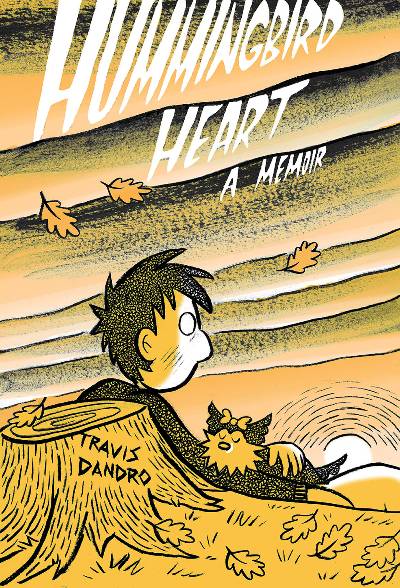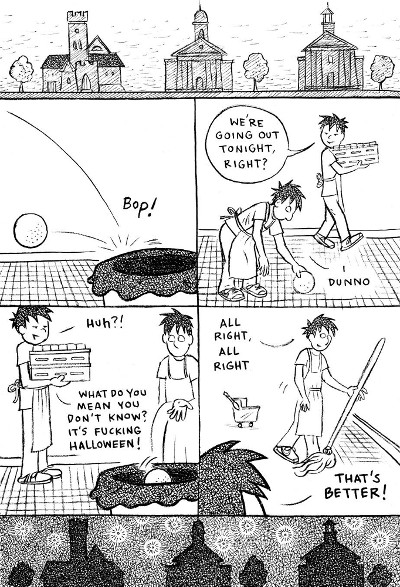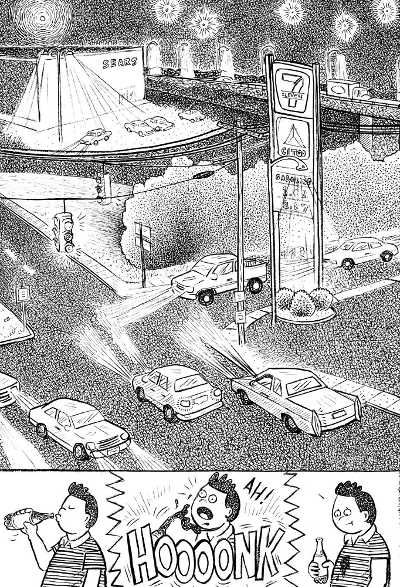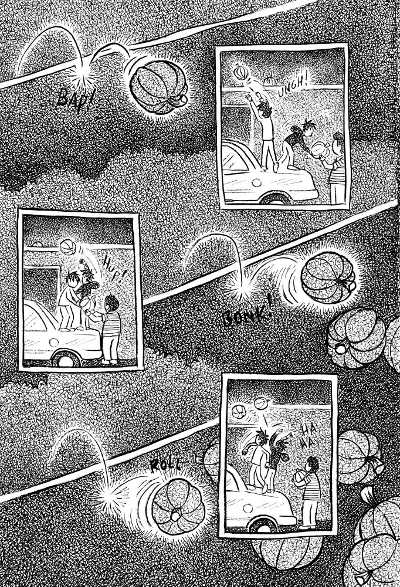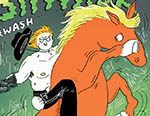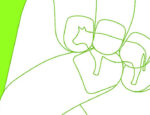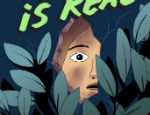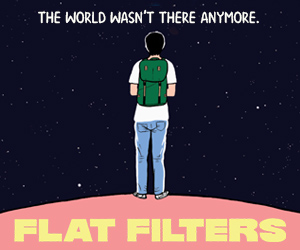There are moments in every memoir involving a certain kind of trauma where one can sense the writer reaching deep within to find something worth holding on to. Those moments recur time and again in Travis Dandro’s debut graphic novel, King of King Court, which laid bare a childhood shaped by addiction. It involved a father hooked on drugs, a stepfather abusing alcohol, and a mother trying to cope. At the centre of that dysfunctional family setting was a sensitive boy trying to make sense of it all.
Hummingbird Heart, Dandro’s follow-up to that account of a troubled childhood, can seem a bit tame by comparison, especially to those expecting the striking juxtapositions of innocence and irresponsibility that gave his first book so much of its emotional depth. The protagonist in this book is older, a little wiser, and often more concerned with life in high school than what he must try and come to terms with at home. His personal life is still in tatters after his estranged father commits suicide and his grandmother is diagnosed with cancer.
It’s interesting to consider the book’s title, when one learns that hummingbirds are said to possess the largest heart of all animals, comprising 2.5% of their weight. When they are in flight, apparently, it beats at 1,220 beats per minute, lowering their metabolic rate and placing them in a state of torpor. Armed with these facts, it’s easy to see this teenage protagonist trying to arrive at a similar state of dispassionate equanimity when confronted with events too large to wrap his head around. It is also a state so many high schoolers appear to find themselves in as they stand on the cusp of college and adulthood.
To write about trauma well can also make difficult demands upon a writer, requiring not just immersion as an active participant in the story being told, but a simultaneous distancing with which to comment upon how things unfold. Dandro uses reveries to affect that distance, as his protagonist slips into dreams populated by animals, iconic cartoon characters, and even everyday appliances that slowly acquire some kind of significance. Also scattered throughout are cultural touchpoints from the 1990s in which the book is set, a time of Nirvana’s album Nevermind and Kevin Costner’s big-budget film, Robin Hood: Prince of Thieves. They do not evoke nostalgia though, as much as a familiar sense of longing for a feeling that is hard to name but undeniably lost.
There are panels of brutal honesty here, not just in the way Dandro’s character communicates with his classmates, but in the way his grandmother’s steady decline is depicted as her body starts to rebel. The authorial gaze is unflinching, which makes the quiet, contemplative panels sweeter and almost cinematic by comparison. It isn’t always easy to follow the narrative though, partly because no one other than the grandmother is fleshed out well enough to spark recognition. One suspects this will be even harder for readers unfamiliar with the artist’s debut.
That quibble aside, Hummingbird Heart is still a worthy addition to the graphic memoir genre. There are obvious signs of artistic growth, and it will be interesting to see where Dandro chooses to go next, if and when he decides to create a work of pure fiction.
Travis Dandro (W/A) • Drawn & Quarterly, $29.95
Buy Hummingbird Heart online here
Review by Lindsay Pereira





